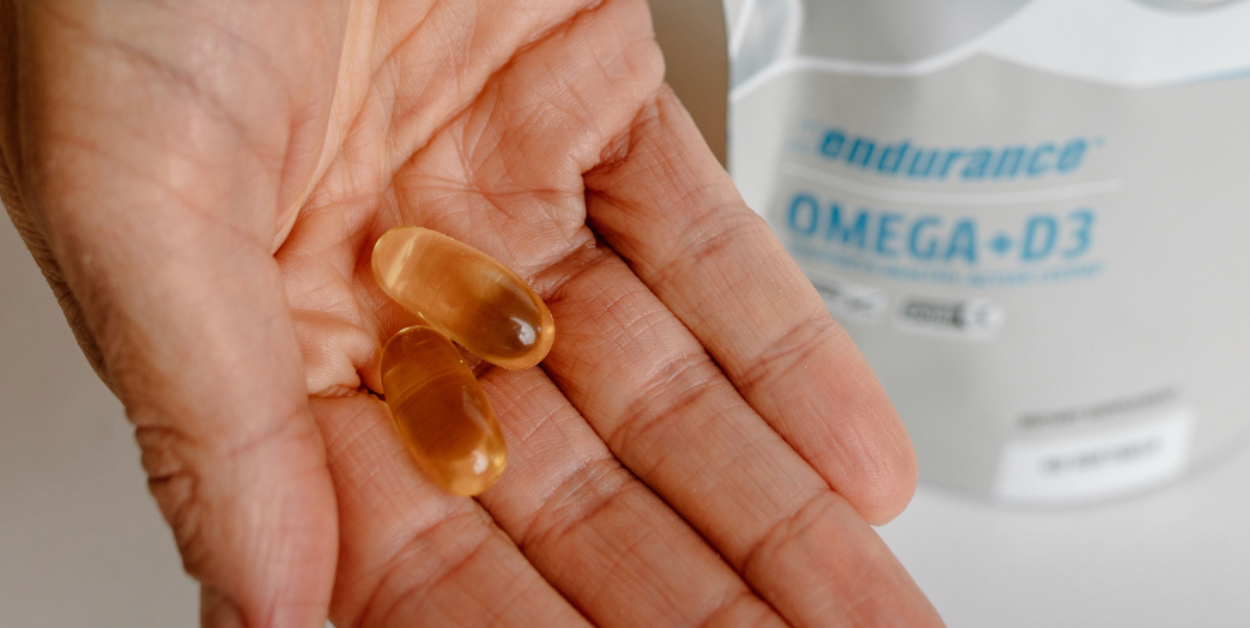Autism Spectrum Disorder (ASD) is a complex neurodevelopmental condition characterized by challenges in social communication, repetitive behaviors, and sensory sensitivities. With prevalence rising—1 in 45 adults and—1 in 31 children in the U.S. diagnosed by 2020, per the CDC—families and individuals are increasingly exploring complementary approaches to support well-being. Among these, dietary supplements have gained attention for their potential to address symptoms like irritability, sleep issues, and gastrointestinal problems common in ASD. But do supplements truly benefit those on the spectrum? And if they do, could they offer broader mental health benefits for everyone? This article dives into the science, medical recommendations, the critical role of nutrition, and recent findings to answer these questions, blending data with hope for inclusive health solutions.
The Science Behind Supplements for ASD
Research on supplements for ASD focuses on addressing nutritional deficiencies, supporting brain function, and alleviating co-occurring symptoms. Here’s a look at the most studied options and their evidence:
Omega-3 Fatty Acids
Omega-3s (EPA and DHA), found in fish oil, are essential for brain health. A 2018 meta-analysis in Neuropsychopharmacology reviewed 10 trials and found that 1-2 grams daily of omega-3s modestly improved hyperactivity, social skills, and irritability in some children with ASD, particularly those with low dietary fish intake. The mechanism: Omega-3s reduce inflammation, which may be elevated in ASD, and support neuronal signaling. However, results vary, with some studies showing no significant effect, suggesting individual factors like baseline diet matter.
Vitamin D
Low vitamin D levels are common in ASD and correlate with symptom severity. A 2016 randomized trial in Journal of Child Psychology and Psychiatry gave 2,000-5,000 IU daily to children with ASD and found improvements in communication and behavior, especially in those with deficiencies. Vitamin D regulates serotonin production, which influences mood and social behavior. Yet, larger trials are needed, as benefits aren’t consistent across all individuals.
B Vitamins and Magnesium
High-dose vitamin B6 (6-10 mg/kg) combined with magnesium (100-400 mg) has been studied since the 1970s. A 2017 review in Nutrients noted some trials reported reduced irritability and better social interaction, but placebo effects and inconsistent findings limit conclusions. Methylated B12 (500-1,000 mcg) shows promise for ASD subtypes with metabolic issues, per a 2016 study, but broad evidence is sparse.
Melatonin
Sleep disturbances affect up to 80% of individuals with ASD. Melatonin (1-6 mg, 30 minutes before bed) is well-supported by a 2011 meta-analysis in Developmental Medicine & Child Neurology, showing improved sleep onset and duration. While it doesn’t address core ASD symptoms, better sleep reduces irritability and enhances daytime functioning.
Gastrointestinal issues, like constipation or dysbiosis, are prevalent in ASD, potentially due to gut-brain axis dysfunction. A 2020 review in Frontiers in Psychiatry found that specific probiotic strains (Lactobacillus, Bifidobacterium, 10-20 billion CFU daily) modestly improved behavior and digestion in some children, but strain-specific effects and small sample sizes call for more research.
Other Supplements
- Zinc (15-30 mg daily): May improve sensory issues and social interaction in deficient children, per small studies.
- N-Acetylcysteine (NAC) (600-900 mg): A 2016 trial suggested reduced irritability, but data is limited.
-
Sulforaphane (from broccoli sprouts): Early studies hint at social and behavioral benefits, but results are inconsistent.
The Catch
The evidence is promising but not definitive. Most studies are small, short-term, or show modest benefits, often for secondary symptoms (e.g., irritability, sleep) rather than core ASD traits (e.g., social communication deficits). Individual variation—due to genetics, diet, or co-occurring conditions—means supplements aren’t a one-size-fits-all solution. Safety is also a concern: high doses or untested products risk side effects like gastrointestinal upset or drug interactions. Third-party tested brands (e.g., USP, NSF) are crucial, and medical supervision is non-negotiable.
What Doctors Recommend for ASD
Medical professionals emphasize a personalized, evidence-based approach. The American Academy of Pediatrics (AAP) and autism specialists recommend:
- Screening for Deficiencies: Blood tests for vitamin D, B12, zinc, or ferritin can identify gaps to target with supplements. For example, a child with low vitamin D may benefit from 2,000 IU daily, while others may not.
- Behavioral Therapies First: Applied Behavior Analysis (ABA), speech therapy, and occupational therapy remain the gold standard for core ASD symptoms. Supplements are adjuncts, not replacements.
- Melatonin for Sleep: Widely endorsed for insomnia in ASD, starting at low doses (1-3 mg) and adjusting as needed.
- Caution with Herbals: St. John’s Wort or high-dose herbals are discouraged due to medication interactions and weak evidence.
- Dietary Focus: Doctors prioritize whole foods over supplements when possible, as nutrients from food are better absorbed and less likely to cause imbalances.
Specialists also warn against unproven trends such as high-dose chelation or megavitamin therapies, which lack evidence and may harm. A pediatrician or neurologist familiar with ASD can tailor recommendations, often integrating supplements with medications (e.g., risperidone for irritability) if needed.
The Role of Nutrition in ASD
Nutrition is a cornerstone of ASD management, as diet influences brain function, gut health, and overall well-being. Many individuals with ASD have picky eating habits, sensory aversions, or restricted diets (e.g., gluten-free), leading to deficiencies in nutrients like iron, calcium, or omega-3s.
Recent Findings on Nutrition and ASD
- Gut-Brain Axis: A 2024 study in Nature Reviews Gastroenterology & Hepatology strengthened links between gut dysbiosis and ASD symptoms. Diets rich in fiber, prebiotics (e.g., from onions, bananas), and fermented foods (e.g., yogurt, kimchi) may improve gut health, reducing irritability and sensory issues. Probiotic supplements mimic these effects but are less studied than whole foods.
- Mediterranean Diet: A 2023 pilot study in Journal of Autism and Developmental Disorders tested a Mediterranean-style diet (high in fruits, vegetables, fish, and olive oil) in children with ASD. After 12 weeks, participants showed better social interaction and reduced repetitive behaviors, possibly due to anti-inflammatory effects and nutrient density.
- Gluten-Free/Casein-Free (GFCF) Diets: Popular in ASD communities, GFCF diets aim to reduce gut inflammation. A 2022 meta-analysis in Pediatrics found no consistent behavioral benefits for most children, but a subset with confirmed food sensitivities showed improvements. Testing for allergies is key before restricting diets.
- Ketogenic Diet: Emerging research, like a 2024 trial in Frontiers in Neurology, suggests ketogenic diets (high-fat, low-carb) may reduce seizures and behavioral issues in ASD with epilepsy, but long-term safety and adherence are concerns.
Nutrition Challenges
Implementing dietary changes is tough. Sensory issues make new foods unappealing, and restricted diets increase deficiency risks. Registered dietitians specializing in ASD can help by introducing nutrient-dense foods gradually (e.g., blending vegetables into smoothies) and ensuring balanced macros.
Can ASD Nutrition Benefits Extend to All?
If supplements and nutrition help individuals with ASD, could they benefit the general population? The answer lies in shared mechanisms: inflammation, gut health, and nutrient deficiencies impact everyone’s mental health.
- Mental Health Parallels: Like ASD, conditions like depression and anxiety are linked to low omega-3s, vitamin D, or gut dysbiosis. A 2020 meta-analysis in JAMA Psychiatry found omega-3s (1-2 g daily) reduced depressive symptoms in adults, mirroring ASD findings. Probiotics also show promise for anxiety, per a 2021 review, suggesting gut-brain benefits are universal.
- Inflammation and Brain Health: Chronic inflammation, implicated in ASD, also drives neurodegenerative diseases and mood disorders. Diets high in antioxidants (e.g., berries, leafy greens) and low in processed foods, as studied in ASD, lower inflammation markers in the general population, per a 2023 American Journal of Clinical Nutrition study.
- Nutrient Deficiencies: Vitamin D deficiency, common in ASD, affects 40% of U.S. adults and is linked to mood disorders. Correcting deficiencies with supplements or sunlight exposure improves cognitive function across ages, per NIH data.
- Sleep and Melatonin: Melatonin’s sleep benefits in ASD extend to insomnia in adults, with 3-5 mg effective for jet lag or shift work, per a 2019 Cochrane Review.
Universal Takeaways
The ASD research highlights principles that apply broadly:
- Eat Nutrient-Dense Foods: A Mediterranean-style diet, rich in whole foods, supports brain and gut health for all.
- Test for Deficiencies: Bloodwork can guide targeted supplementation, avoiding guesswork.
- Prioritize Gut Health: Prebiotic and probiotic foods benefit mood and immunity, not just in ASD.
- Sleep Matters: Good sleep hygiene, with melatonin as needed, enhances mental clarity universally.
Nourishing the Spectrum and Beyond
Supplements can benefit some individuals with ASD, particularly for sleep, behavior, and gut health, but they’re not a cure-all. Omega-3s, vitamin D, and melatonin have the strongest evidence, while nutrition—through whole foods and targeted diets—plays a starring role. Recent findings on gut health and anti-inflammatory diets offer exciting possibilities, but personalized medical guidance is essential to navigate the variability of ASD.
The lessons from ASD extend to us all. By addressing inflammation, optimizing nutrients, and nurturing the gut-brain axis, we can enhance mental health across the spectrum of human experience. Whether you’re supporting a loved one with ASD or seeking better well-being, the path is similar: eat well, test smart, and supplement wisely. As research grows, so does hope for inclusive strategies that uplift everyone’s health.









Leave a comment
This site is protected by hCaptcha and the hCaptcha Privacy Policy and Terms of Service apply.